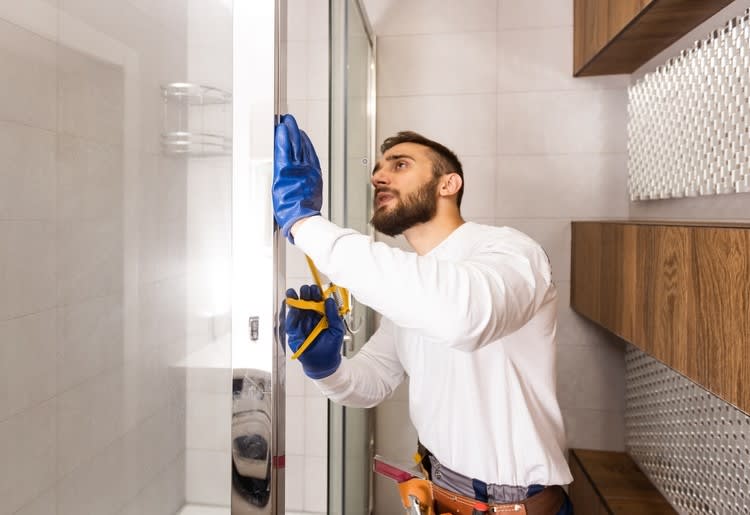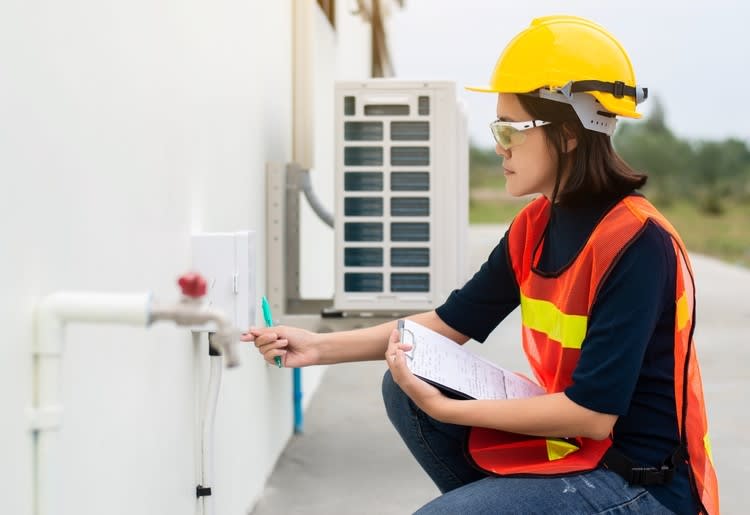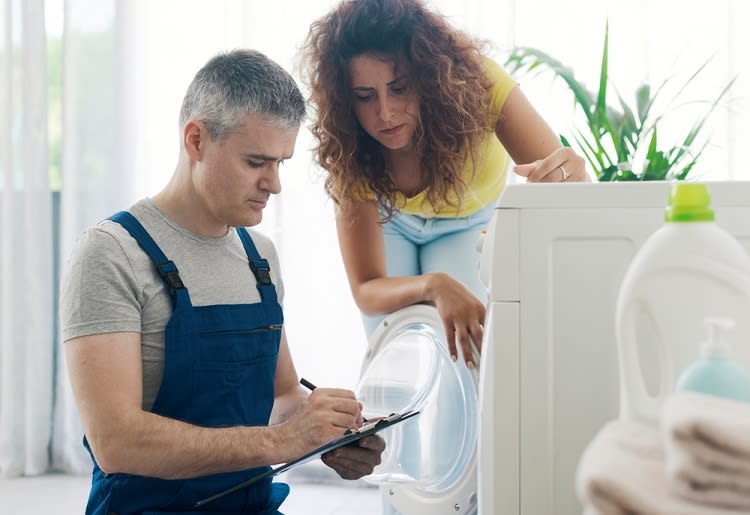When comparing your home warranty options, it’s good to bear in mind that certain pre-existing conditions are excluded from coverage. Though it’s rare, you absolutely can find home warranty plans that cover them.
So, in this article, we'll share ten things to consider when shopping around for plans that cover pre-existing conditions.
» Need a home warranty for your new house? Here are our top 10 picks for home warranty companies.
1. You Should Know How a Home Warranty Works
A home warranty is a type of home service contract that helps to cover the cost of repairs and replacements of certain home systems and appliances. In exchange for a monthly service payment, homeowners will potentially save big money if any items break while under warranty.
2. You Should Check the Pre-Existing Condition Clauses
A pre-existing condition is essentially any failure or defect in a house appliance that existed PRIOR to the purchase of the contract. In the home warranty space, pre-existing conditions are broadly classified as known or unknown (more on this below).
Every home warranty contract is unique in terms of what is and isn’t covered by a pre-existing condition clause. Luckily, home warranty markets are becoming much more competitive, so many are now covering some pre-existing conditions to stand out.
» Want to protect your assets? Find out what items are covered by a home warranty.

3. You Should Know How to Inspect for a Pre-Existing Condition
The best way to find pre-existing conditions is by hiring a home inspector. Home inspectors will conduct mechanical and visual examinations of all your home’s systems and appliances to identify any faults.
- Visual examinations involve a thorough search to find any visible signs of damage or missing parts that might lead to future inoperability.
- Mechanical examinations involve the actual use of the appliance or system to observe sounds, behaviors, and other oddities that would indicate a problem.
4. You Should Know About Known Pre-Existing Conditions
A known pre-existing condition is exactly what it sounds like. It’s a defect or potential mechanical failure that can be easily observed during an inspection.
If you find any issues during the examination, that would be a known pre-existing condition. This will exclude warranty coverage on that particular appliance until you pay out of pocket to repair or replace it.
» Want a home warranty with low premiums? Try Choice Home Warranty.
5. You Should Know About Unknown Pre-Existing Conditions
An unknown pre-existing condition would be anything that wasn't/can't be found with either a visual or mechanical examination.
Many home warranty companies advertise that they’ll cover items regardless of age, make, or model without a home inspection. But beware. Some companies honor this better than others—and others may use their “unknown pre-existing condition” clause to deny a claim. For this reason, keeping a detailed record of inspection is crucial if you want your contract to cover unknown faults.
6. You Should Know When a Pre-Existing Condition is Covered
The best way of knowing when a warranty company will cover a pre-existing condition is to review your service contract. As mentioned previously, having a home inspection can bolster your case for coverage when there is an unknown pre-existing condition.
Companies often also use a waiting period at the start of a contract that helps offset their risk of financially covering a pre-existing condition (more on this below).
» Not sure if your assets will be covered if damaged? Here are ten items not covered by a home warranty.

7. You Should Know What It Means to Own Old Appliances
Just because you have an old home or an old appliance doesn’t mean you won’t be covered when things go wrong. If an old appliance is in good operating condition at the start of the warranty period, future damage may still be covered.
If the damage is extensive enough that it can’t be repaired, your home warranty company could replace it. Sometimes certain old appliances that are covered can't be replaced due to unique features. If this is the case, the warranty company will either find a replacement that’s functionally equivalent or reimburse you for the depreciated value.
8. You Should Know About Waiting Periods
As mentioned before, many warranty companies have a waiting period to help reduce their financial risk for repairs or replacements. This period is anywhere from 15 to 60 days, depending on the contract. Once this waiting period elapses, you can request service.
» Want a home warranty with free roof leak coverage? Try Select Home Warranty.
9. You Should Know What to Do if a Claim Is Denied
Oftentimes when a company denies a claim, you request a second opinion from an inspector if you believe you have a case. Your warranty may not immediately recognize this, but almost all home service contracts will have a clause describing acceptable methods of dispute resolution (like arbitration). If the repair or replacement is expensive enough, it may make sense to pursue this option.
If all else fails, you can even file a complaint on the company’s public website or with the Better Business Bureau if you’re not happy with how they handled the dispute.
10. You Should Know How to Care For Your Assets
To maximize the life of your home systems and appliances, it’s critical to do regular maintenance to ensure you'll get coverage from a home warranty.
Most importantly, home maintenance will not only help extend the life of your appliances, but it can also help protect your home and loved ones from dangers such as fires.

The Fine Print
Home warranties are fantastic for helping you save money and time. Just always make sure to adhere to your contract terms and do your due diligence to protect yourself from unexpected mishaps.
» Want to know how to prevent expensive repairs for your new home? Here are 10 maintenance tips new homeowners only find out in their first year.
